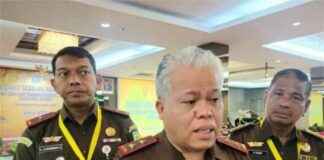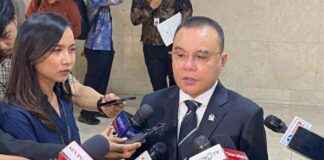Former Chief Judge of Surabaya Court Receives 63 Thousand Singapore Dollars in Ronald Tannur Bribery Case
The former Chief Judge of the Surabaya Court, Rudi Suparmono, has been named a corruption suspect for receiving bribes and gratuities in the case involving the acquittal of Gregorius Ronald Tannur. Rudi’s legal status was upgraded after his arrest in Palembang, Sumatra, on Tuesday, January 14, 2025, by the Special Crime Prosecutor of the Attorney General’s Office.
The arrest was made due to Rudi still being registered as a judge at the High Court of South Sumatra. In the Ronald Tannur case, investigators allege that Rudi received a total of 63,000 Singapore dollars (SGD), equivalent to Rp 750 million, for his role in manipulating the composition of the judges’ panel overseeing the murder and severe assault case of Dini Sera Afriyanti. Following the acquittal of Ronald Tannur, Rudi was promoted to the position of Chief Judge of Central Jakarta District Court.
After being taken into custody and brought to Jakarta for questioning as a witness, enough evidence was found by the investigators to name Rudi as a suspect. Subsequently, Rudi was detained at the South Jakarta District Attorney’s Office Detention Center for 20 days to expedite the investigation process.
### The Suspect’s Role
Rudi’s involvement in the bribery and gratuity scheme was unraveled by Abdul Qohar, Director of Investigation at the Special Crime Prosecutor’s Office. It was revealed that Rudi, as the Chief Judge of Surabaya Court, was informed by his colleague Zarof Ricar (ZR), a former head of legal education and training at the Supreme Court.
On March 4, 2024, ZR sent a message to Rudi stating that Lisa Rahmat (LR), Ronald Tannur’s lawyer, was requesting an introduction to high-ranking officials at the Surabaya Court. ZR then informed Rudi that LR would meet him at the Surabaya Court. LR, who is also a suspect and detainee in the case, met with Rudi on the same day.
During the meeting, LR inquired about the composition of the judges’ panel presiding over Ronald Tannur’s case. Rudi disclosed to LR the names of three judges he had appointed for the case – judges ED, M, and HH.
In conclusion, the unfolding events shed light on the intricate web of corruption and influence-peddling within the judicial system, showcasing the urgent need for transparency and accountability to uphold the rule of law and restore public trust in the judiciary.














